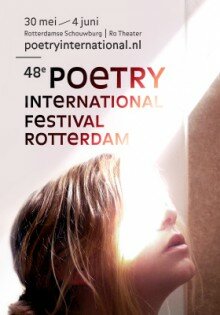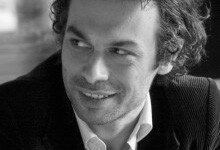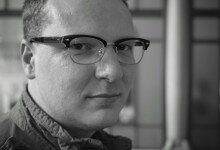Odysseus Elytis on his poetry
It has been said that I am a Dionysian poet, particularly in my first poems. I do not think this is correct. I am for clarity. As I wrote in one of my poems, “I have sold myself for clearness.” I told you that I am critical of occidental rationalism, skeptical of its classicism, and that I feel the breach opened by surrealism was a real liberation of the senses and the imagination. Could one possibly conceive of a new classicism in the spirit of surrealism? Is this a contradiction in terms? Do you know the work of Hans Arp? There you have great simplicity! He is a classical sculptor, isn’t he? Yet he was a surrealist! In other words, the world of surrealism had its classicists and romanticists. Essentially, it was romantic movement. But Éluard, for example, I personally find more classical than romantic.
I never was a disciple of the surrealist school. I found certain congenial elements there, as I have told you, which I adapted to the Greek light. There is another passage in my “Open Book” where I say that Europeans and Westerners always find mystery in obscurity, in the night, while we Greeks find it in light, which is for us an absolute. To illustrate this I give three images. I tell how once, at high noon, I saw a lizard climb upon a stone (it was unafraid since I stood stock-still, ceasing even to breathe) and then, in broad daylight, commence a veritable dance, with a multitude of tiny movements, in honor of light. There and then I deeply sensed the mystery of light. At another time I experienced this mystery while at sea between the islands of Naxos and Paros. Suddenly in the distance I saw dolphins that approached and passed us, leaping above the water to the height of our deck. The final image is that of a young woman on whose naked breast a butterfly descended one day at noon while cicadas filled the air with their noise. This was for me another revelation of the mystery of light. It is a mystery which I think we Greeks can fully grasp and present. It may be something unique to this place. Perhaps it can be best understood here, and poetry can reveal it to the entire world. The mystery of light. When I speak of solar metaphysics, that’s exactly what I mean.
I am not for the clarity of the intelligence, that which the French call “la belle clarté.” No, I think that even the most irrational thing can be limpid. Limpidity is probably the one element which dominates my poetry at present. The critic Varonitis has perceived this. He says that in my book “The Light Tree” there is an astonishing limpidity. What I mean by limpidity is that behind a given thing something different can be seen and behind that still something else, and so on and so on. This kind of transparency is what I have attempted to achieve. Is seems to me something essentially Greek. The limpidity which exists in nature from the physical point of view is transposed into poetry. However, as I told you, that which is limpid can at the same time be altogether irrational. My kind of clarity is not that of the ratio or of the intelligence, not clarté as the French and Westerners in general conceive it.
You always look somewhat puzzled, I notice, whenever I contrast Greeks with Westerners or Europeans. This is not a mistake on my part. We Greeks belong politically, of course, to the Occident. We are part of Europe, part of the Western world, but at the same time Greece was never only that. There was always the oriental side which occupied an important place in the Greek spirit. Throughout antiquity oriental values were assimilated. There exists an oriental side in the Greek which should not be neglected. It is for this reason that I make the distinction.
Let me conclude by reading to you a concise statement I have prepared concerning the aims of my poetry:
I consider poetry a source of innocence full of revolutionary forces. It is my mission to direct these forces against a world my conscience cannot accept, precisely so as to bring that world through continual metamorphoses more in harmony with my dreams. I am referring here to a contemporary kind of magic whose mechanism leads to the discovery of our true reality. It is for this reason that I believe, to the point of idealism, that I am moving in a direction which has never been attempted until now. In the hope of obtaining a freedom from all constraints and the justice which could be identified with absolute light, I am an idolater who, without wanting to do so, arrives at Christian sainthood.
Athens, 27 March 1972
From: Books abroad, vol. 49, no 4 Autumn 1975







